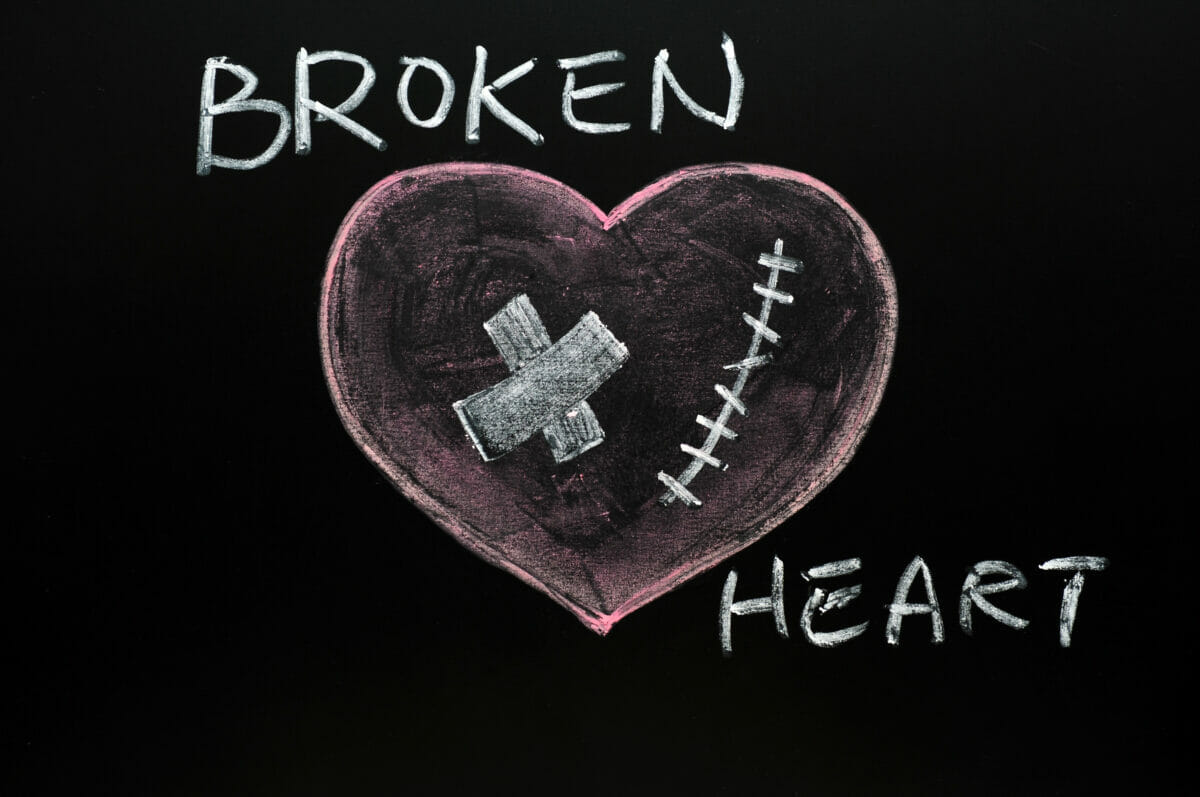Going through healing from breakup can be an emotionally challenging experience. But how do you effectively navigate the journey to recovery and find your footing again? This comprehensive guide explores expert advice and proven strategies to help you heal and move forward. How can you care for yourself and regain a sense of self-worth after a relationship ends?
Caring for yourself and regaining self-worth after a breakup involves allowing yourself to grieve, practicing self-care, setting boundaries, seeking support from friends and family, and focusing on personal growth and development.
Understanding the Emotional Impact of a Breakup:
The end of a romantic relationship can trigger a range of emotions. Acknowledging and permitting yourself to experience these feelings is crucial in the healing cycle. Here are some common emotions people experience after a breakup:
- Sadness: It’s natural to feel a sense of loss after a breakup, even if the relationship wasn’t perfect
- Anger: You might feel resentment towards your ex, especially if the relationship ended on bad terms
- Guilt: Some people experience guilt for their role in the relationship’s demise or for causing pain to their ex-partner
- Loneliness: Losing a close companion can leave you feeling isolated and empty
Grieving the Loss: Why It’s Important to Feel Your Feelings:
Granting yourself permission to feel and grieve the end of the relationship is a crucial step in the healing cycle. Allow yourself to mourn and feel your emotions. Remember that it’s normal to experience mixed emotions after a breakup, and processing them is essential for healing.
- Allow yourself to cry: Crying can be a therapeutic way to release pent-up emotions
- Reach out to friends and family: Sharing your feelings with supportive people can help alleviate some of the emotional burdens
- Write in a journal: Putting your thoughts and emotions on paper can help you process and better understand your feelings
Understanding the Stages of Grieving a Breakup
- Denial: Refusing to accept the reality of the breakup
- Anger: Feeling resentment or frustration toward your ex or the situation
- Bargaining: Attempting to make deals with yourself or others to reverse the breakup
- Depression: Experiencing sadness, hopelessness, or a sense of loss
- Acceptance: Coming to terms with the end of the relationship and moving forward
The Role of Self-Care in the Healing Process:
Taking care of your physical and emotional well-being is essential during the post-breakup period. Prioritizing self-nurturing can help you regain balance and control in your life. Here are some self-help tips to help you heal:
- Engage in activities that bring you joy and relaxation
- Prioritize physical and mental well-being
- Practice mindfulness and meditation to help cope with negative emotions
- Consider seeking professional help, such as therapy or counseling
Factors that Affect the Healing Process
| Factor | How It Affects Healing |
|---|---|
| Duration of the relationship | Longer relationships may require more time to heal |
| Emotional attachment | Stronger attachments can make healing more challenging |
| Reason for the breakup | Breakups due to betrayal or sudden loss can be more painful |
| Personal coping mechanisms | Effective coping strategies can speed up healing |
| Support system | A strong support network can provide comfort and guidance |
Setting Boundaries: Why Keeping Your Distance Matters:
Creating distance between you and your ex-partner is crucial for your healing. Maintaining contact can prolong recovery and make it difficult to let go. Consider the following tips for setting boundaries after a breakup:
- Limit or cut off contact with your ex to avoid rehashing old wounds
- Unfollow or mute them on social media to minimize emotional triggers
- Avoid places and situations where you might encounter your ex, especially in the initial stages of healing
How to Rebuild Your Sense of Self-Worth after a Breakup
Rediscovering your sense of self-worth after a breakup is essential for emotional recovery. Focus on your growth and invest in activities that bring you joy and fulfillment. Here are some suggestions for boosting your value:
How-To Guide:
- Appreciate your strengths and successes: Write down your accomplishments, talents, and positive attributes to remind yourself of your value. Embrace the emotions that accompany self-appreciation and reinforce your value after a breakup.
- Establish attainable objectives: Create personal and professional goals that align with your core values and desires. Utilize moving on after a breakup as an opportunity for growth and self-discovery.
- Build a robust support system: Surround yourself with friends and family who uplift and encourage you, offering a safety net as you navigate the healing cycle.
- Cultivate self-compassion: Treat yourself with kindness, understanding, and patience during this challenging time. Acknowledge that recovering from a breakup takes time, and allow yourself to feel the emotions without judgment.
- Pursue confidence-boosting activities: Engage in hobbies or interests that make you feel accomplished and proud. Embrace new experiences and opportunities, opening yourself up to the possibility of finding someone new and creating a brighter future.
Remember, healing from heartbreak is an essential part of the journey, and taking the necessary steps to rebuild your self-worth will help you move forward and thrive in your next relationship.
Processing Negative Emotions: Strategies for Moving Forward:
Dealing with the negative emotions that come with a breakup can be challenging, but it’s essential to confront and process them to heal fully. Here are some strategies for moving forward:
- Practice mindfulness: Engage in meditation or deep breathing exercises to help you stay present and manage your emotions
- Seek professional help: A therapist or counselor can provide guidance and support for navigating healing
- Cultivate a positive mindset: Focus on the lessons learned from the relationship and the opportunities for personal growth that lie ahead
Expert Insights: How Long Does It Take to Heal?
There is no one-size-fits-all answer to how long it takes to heal from heartache. According to experts, the healing varies depending on the relationship’s duration, intensity, and the individual’s coping mechanisms. However, with time, effort, and support, most people eventually find a sense of closure and move on.
Essential Steps for Healing from a Breakup
Step-by-Step Process:
- Allow yourself to mourn: Give yourself permission to feel your emotions and process the loss of the relationship.
- Maintain healthy boundaries: Keep your distance from your ex and avoid contact to prevent emotional setbacks.
- Practice care: Prioritize your physical, emotional, and mental well-being through joy and relaxation activities.
- Seek support: Reach out to friends, family, or professionals to help you navigate recovery
- Focus on personal growth: Use the experience to learn, grow, and develop new skills or interests.
Rebuilding Your Life after Heartbreak:
Once you’ve allowed yourself to mourn and process your emotions, it’s time to start rebuilding your life. This might involve setting new goals, pursuing personal interests, and fostering healthy relationships with others. Remember, healing takes time, and it’s essential to be patient with yourself during this process.
- Reflect on the lessons learned from your previous relationship
- Take the time to feel confident and secure in your own identity
- Be open to new connections when you feel emotionally ready
Learning from the Experience: Lessons for Future Relationships:
Regardless of its outcome, every relationship offers valuable lessons for personal growth. When reflecting on your past relationship, consider these insights to apply to future relationships:
- Understanding your needs and values: Assess what is essential in a relationship and what values you want to share with a partner.
- Recognizing patterns: Identify any recurring patterns or behaviors that may have contributed to the end of past relationships, and work on addressing them.
- Communication skills: Improve your communication skills to express your feelings, needs, and expectations more effectively.
- Setting boundaries: Learn to set healthy boundaries to protect your emotional well-being and create a balanced relationship dynamic.
- Conflict resolution: Develop better strategies to handle disagreements and challenges productively and respectfully.
By reflecting on these lessons, you can build a stronger foundation for future relationships and continue to grow as an individual.
Signs You’re Ready for a New Relationship:
Knowing when you’re ready to start dating again can be challenging. Here are some signs that indicate you’ve moved on from your breakup and are open to new connections:
- You feel comfortable being alone: This indicates that you’ve regained your sense of worth and independence
- You’ve let go of resentment: Holding onto anger towards your ex can hinder your ability to form new, healthy relationships
- You’re excited about the future: Feeling optimistic about new experiences and connections shows that you’re emotionally ready to move on
Conclusion:
Healing from a heartbreak is a personal and often challenging journey. You can effectively navigate the recovery process by understanding the emotional impact, allowing yourself to lament, practicing personal care, and setting boundaries. With time, support, and self-compassion, you’ll gradually rediscover happiness and be ready for new relationships.
FAQ:
How long does it take to heal after a breakup?
The duration of healing after a breakup can differ significantly from one individual to another. Factors such as the nature of the relationship, individual coping mechanisms, and personal growth all play a role. Remember to be patient with yourself and allow the recovery process to progress at its own pace.
How do I stop hurting after a break up?
Focus on self-care and emotional well-being to lessen the pain after a breakup. Immerse yourself in activities that make you happy and fulfilled, lean on friends and family for support, and contemplate speaking with a mental health professional to work through the emotions associated with the end of a relationship.
How do you accept a relationship is over?
Accept that a relationship has ended, recognize the reality of the situation, allow yourself to grieve, and envision a future without your ex. This process might also involve seeking support from friends, family, or professionals to help navigate the emotions that accompany a breakup.
How do you get over an ex you still love?
Moving on from an ex you still care for can be tough, but it’s crucial to prioritize your well-being and emotional health. Concentrate on self-kindness, maintain boundaries with your ex, and invest time in personal growth and development. Surround yourself with a supportive network of friends and family, and be patient with your healing journey.
What is the hardest time after a breakup?
The hardest time after a breakup can vary depending on individual factors, but often, the initial weeks or months following the end of a relationship are the most challenging. This period is typically marked by intense emotions, feelings of loss, and the need to adjust to a new reality without your ex.
Who hurts longer after a breakup?
It’s challenging to generalize who hurts longer after a breakup. Emotional responses to relationship endings can vary widely based on individual circumstances, the nature of the relationship, and personal coping mechanisms. Both partners may experience pain and heartache, but the intensity and duration of these feelings can differ significantly.








Leave a comment